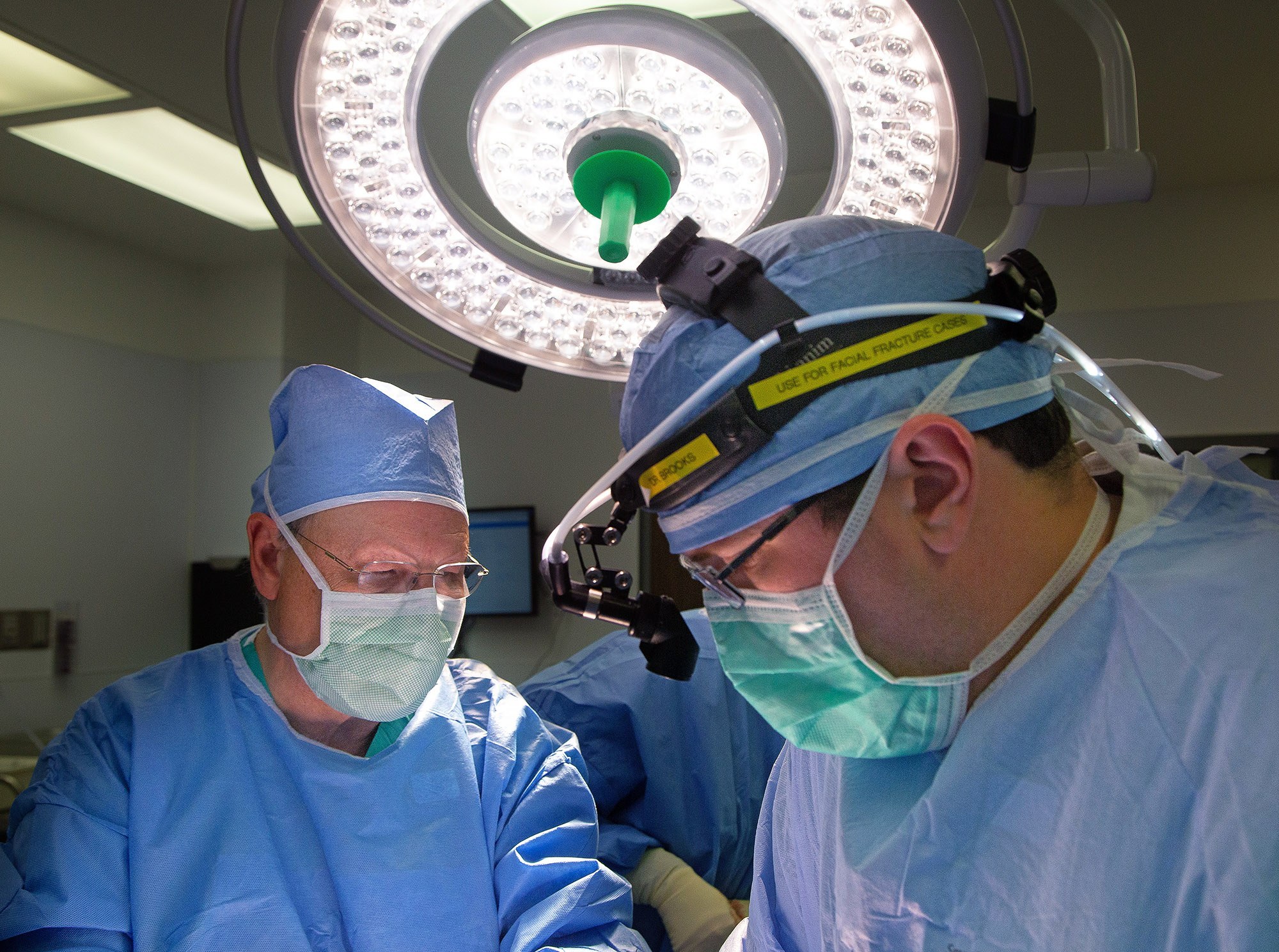
LINX study indicates procedure more effective treatment for GERD
A new study published in Clinical Gastroenterology and Hepatology shows that patients who experience gastroesophageal reflux disease (GERD) have better results – both short and long-term – after having the LINX procedure than those who treat their GERD with medical therapy.

By Lindsay Mott
[email protected]
A new study published in Clinical Gastroenterology and Hepatology shows that patients who experience gastroesophageal reflux disease (GERD) have better results – both short and long-term – after having the LINX procedure than those who treat their GERD with medical therapy.
William Richards, M.D., professor and chair of surgery at the University of South Alabama College of Medicine and director of the USA Surgical Weight Loss Center, performs the LINX procedure at USA Health and was one of the CALIBER study investigators and authors.
The article "Magnetic sphincter augmentation superior to proton pump inhibitors for regurgitation: 1-year randomized controlled trial "(CGH-D-19-01338)” is a follow-up to a study that began several years ago and was published approximately a year and a half ago as the study participants hit six months post-surgery. The current article reflects patient results after one year.
“A minimally-invasive outpatient procedure has yielded better patient results at 6 months and 1 year than an increase in medication,” Richards said. “That’s a pretty big deal.”
The trial studied approximately 150 patients who had severe GERD and were already taking proton pump inhibitors (PPIs). The patients were randomized into medical therapy, which put them either at the maximum dose of PPIs per day or the LINX procedure.
“Early results indicated that the patients who had the surgery were far better with less symptoms, improved results, and satisfaction with their care,” Richards said. “After one year, they were still doing well. Surgery sustains that really good outcome.”
According to Richards, this type of trial, that is randomized and controlled to answer a specific question, provides level one evidence, which is the best level of evidence. “We’re conducting research to answer these types of questions,” Richards said. “USA Health is on the cutting edge. We participate in trials with our colleagues to investigate how we’re doing and how we can do better and provide better care to patients. Now, we have at least one answer.”
GERD, commonly referred to as acid reflux or heartburn, is a disease that is caused by a weak lower esophageal sphincter. This weak muscle allows stomach acid and bile to flow back into the esophagus, often damaging the lining of the esophagus and causing symptoms like heartburn or chest pain.
LINX is the only device approved by the Food and Drug Administration for the treatment of GERD and has proven to eliminate dependence on medication and improve quality of life. The device consists of a small, flexible band of magnets that is surgically placed around the esophagus just above the stomach to help prevent reflux.
Clinical Gastroenterology and Hepatology is a journal published by Elsevier on behalf of the American Gastroenterological Association.




